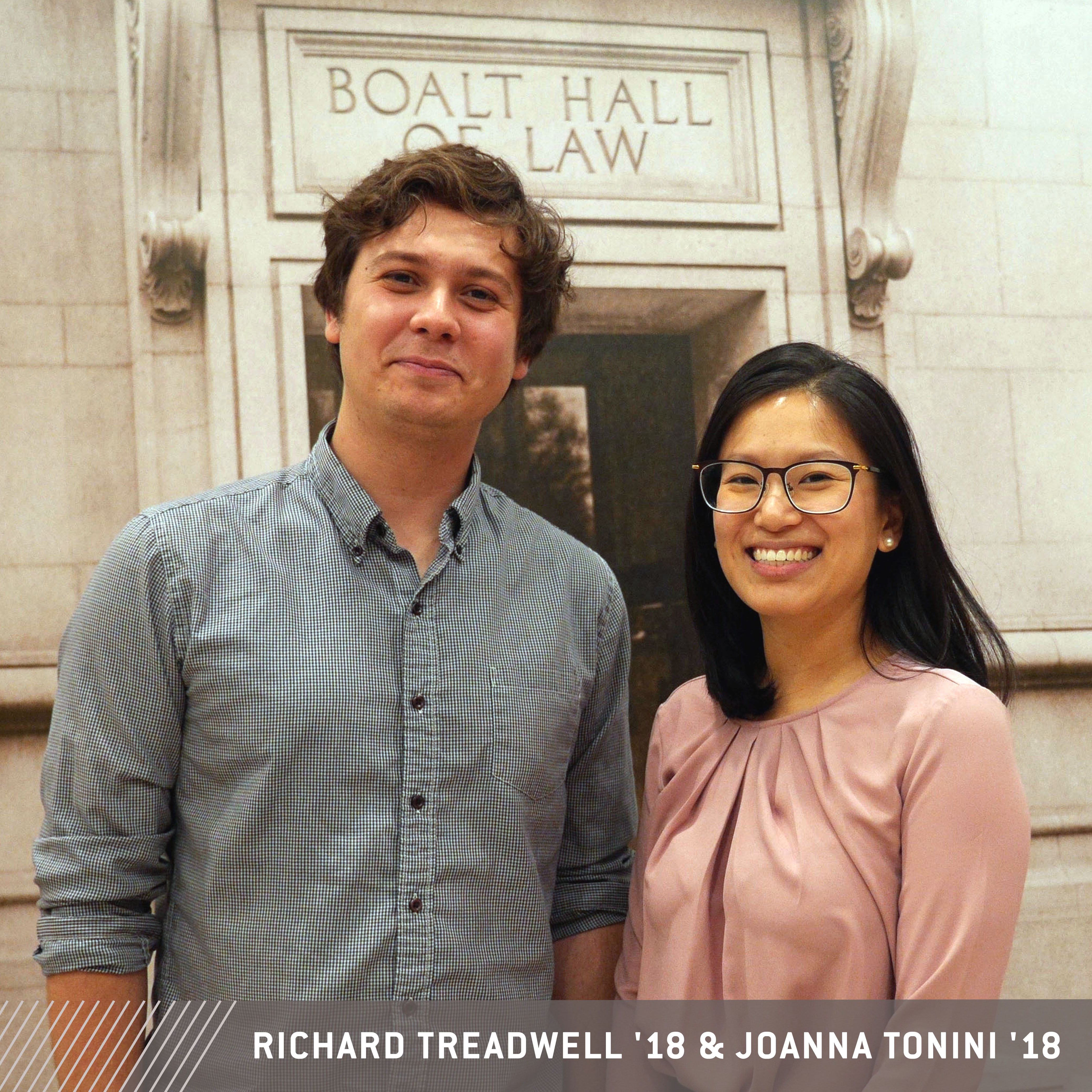
Co-Editors-in-Chief, Berkeley Journal of Employment & Labor Law
Richard: Work is so central to everyone’s life, it’s how we define ourselves. It’s closely tied to our identity, so it’s important to have advocates trying to make that sphere of life better.
JoAnna: Before starting law school I worked for the Department of Labor, so that was my introduction to employment law and I found it really compelling because it’s so relatable. Everyone either works or knows someone who works, and usually among them will be people who have experienced workplace issues, whether they be excessive hours or not getting paid on time.
What makes Berkeley Law so great is that it allows 1Ls to get involved right away in areas we are most interested in. So I joined the Berkeley Journal of Employment and Labor Law (BJELL) and the Workers Rights Clinic (SLPS) during my first year. Those two organizations really complement each other.
We’re super fortunate to have Professor Catherine Fisk as our faculty advisor. She has so much expertise and knowledge, and she knows so many incredible people in this field.
Richard: The BJELL community as a whole is amazing. We attract the best people who take the work seriously, but they don’t take themselves too seriously. Everyone wants to do more and help the organization grow and support each other. It’s really a privilege as co-editors-in-chief to enable their ideas.
JoAnna: And work law is a super exciting topic! The employment landscape is constantly changing. As technology evolves, that changes how the workplace operates, it changes how we do work. Uber and Lyft didn’t exist 10 years ago, and that has spurred all sorts of on-demand services like cleaning and errands services. People just work differently now. That’s not necessarily a bad thing as many people enjoy that flexibility. But trying to fit these new roles into the current law can be a challenge.
Richard: I think that’s one of the coolest things about BJELL, we’re publishing articles on the forefront of what’s going on in labor and employment so that practitioners and judges can look to us as a resource for issues relating to, say, independent contractors, or other contemporary workplace issues that may not be clearly defined in the law. For example, in our next issue we are publishing a study on sexual harassment training in the workplace and whether they are effective. We also recently hosted a conference on age discrimination in partnership with the American Association of Retired Persons (AARP).
JoAnna: I’m probably biased, but because work is so ubiquitous in our lives I really believe there are growing opportunities and career pathways in work law. Employment law is applicable to every industry no matter how small or large and it transcends socio-economic status as well. It affects literally all of us.